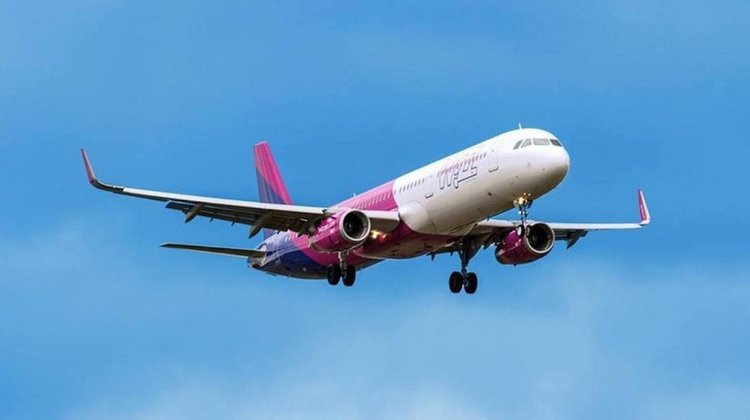Wizz Air improves its CDP Global Environmental Impact ranking
Press Release 10:27 - 12 February 2024

Wizz Air has received a “B” score in the 2023 climate ranking by the global environmental disclosure nonprofit organisation CDP. The result shows a two-band improvement from Wizz Air’s 2022 score (“D”).
The overall “B” score in CDP ranking indicates that Wizz Air is taking coordinated action on climate issues. CDP also awarded Wizz Air the highest scores for disclosure on Scope 1 & 2 emissions (including verification), emission reduction initiatives and low carbon products, risk management processes, governance.
Wizz Air continuously operates with the lowest carbon emission per passenger/km among competitor airlines and is committed to further reducing its CO2 intensity by 25% by 2030, it said.
In 2023, the airline achieved its record low annual average CO2 intensity result, which amounted to 51.5 grams per passenger/km, a 6.8% reduction to 2022. Among the integral elements of the airline’s sustainability strategy are aircraft fleet renewal, operational efficiency initiatives and investments in sustainable aviation fuel. Wizz Air also works closely with its industry partners and stakeholders to further reduce CO2 emissions throughout the entire supply chain.
Wizz Air has participated in CDP disclosure since 2021. Fully aligned with the Task Force on Climate-related Financial Disclosures, CDP holds the largest environmental database in the world. CDP scores are widely used to drive investment and procurement decisions towards a zero carbon, sustainable and resilient economy.
Yvonne Moynihan Corporate and ESG Officer at Wizz Air, said: “The “B” score in CDP’s ranking is a testament to the significant work that Wizz Air is doing to manage its environmental impact. Wizz Air already operates with the lowest carbon footprint per passenger/km in the world[1], and we are proud that we were also able to significantly improve our CDP ranking this year, especially considering that CDP has strengthened their criteria for scoring. We have a robust sustainability strategy, continue investing in the latest technology aircraft and sustainable aviation fuel and remain committed to our target to further reduce our carbon intensity by 25% by 2030.”

